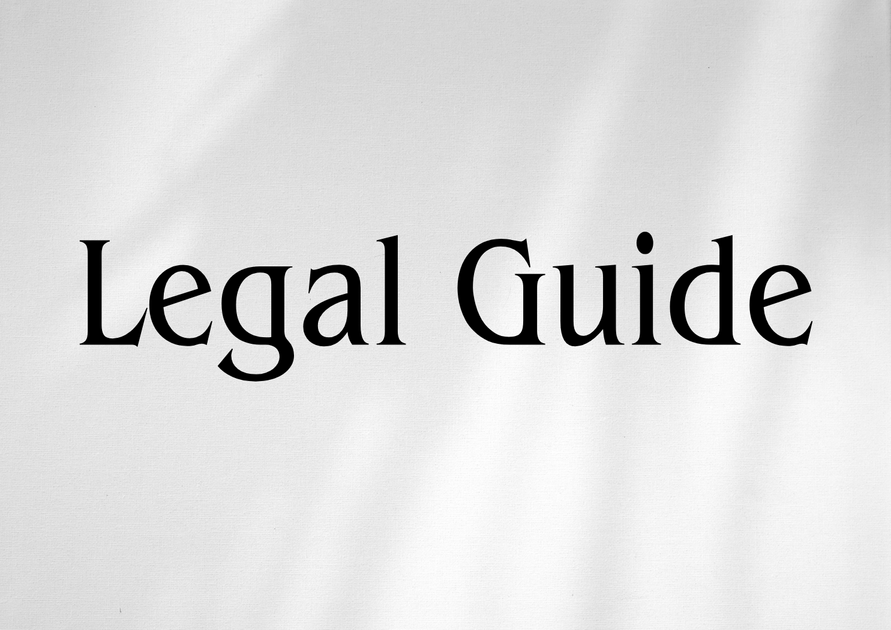Introduction
The compliance landscape in the Middle East is rapidly evolving, with anti-corruption regulations taking center stage in regulatory reforms across the GCC. Amidst tightening international standards and global scrutiny, Qatar has enacted robust anti-corruption laws that impact not only entities within its borders but also multinational and UAE-based businesses with Qatar-linked operations or partners. Understanding and adhering to Qatar’s anti-corruption compliance requirements has become crucial for executives, general counsels, human resource professionals, and decision-makers in the UAE. This is especially timely following recent legal updates in both Qatar and the UAE, as businesses strive to achieve seamless cross-border compliance and mitigate the heightened risks of regulatory penalties and reputational harm.
This in-depth article, brought to you by experienced UAE legal consultants, provides a professional, consultancy-grade analysis of Qatar’s anti-corruption regime. It explores the key statutes, compares these with recent changes to UAE anti-corruption law, and delivers actionable compliance insights to safeguard your business. Readers will find expert commentary on laws, penalties, compliance strategies, case studies, and both sector-specific and practical recommendations for enhancing anti-bribery controls.
Table of Contents
- Qatar’s Anti-Corruption Legal Framework
- Key Provisions: Detailed Legal Analysis
- Comparison of UAE and Qatar Anti-Corruption Laws
- Practical Implications for UAE-Based Businesses
- Penalties and Risks of Non-Compliance
- Building Effective Compliance Programs
- Case Studies & Practical Scenarios
- Conclusion & Best Practices
Qatar’s Anti-Corruption Legal Framework
Overview of the Main Laws
Qatar has instituted stringent anti-corruption regulations aligned with global best practices and regional obligations, including:
- Law No. 11 of 2004 (Qatar Penal Code): Contains foundational provisions criminalizing bribery, embezzlement, and abuse of office for public officials, as well as relevant private sector offences.
- Law No. 15 of 2010 (Anti-Money Laundering and Combatting the Financing of Terrorism Law “AML/CFT Law”): Reinforces anti-corruption efforts by targeting the financial channels that facilitate corrupt transactions.
- Law No. 17 of 2002 Concerning Protection of Public Funds: Supplements the Penal Code with more detailed provisions on misappropriation of public monies by both government and private sector entities executing public contracts.
- National Committee for Integrity and Transparency (NCIT): Established by Emiri Decision No. 84 of 2007 as the principal agency for monitoring, investigation, and policy development on corruption issues in Qatar.
Scope and Jurisdiction
Qatar’s anti-corruption laws broadly apply to:
- All individuals and legal entities operating or conducting business activities in Qatar
- Foreign companies and their representatives engaged in commercial activities with Qatari public entities
- Natural and legal persons involved in the management or performance of public funds or functions
The extraterritorial reach of certain offences is noteworthy, as entities outside Qatar, including UAE companies, may fall within the jurisdiction of Qatari anti-corruption statutes if involved in activities with Qatari partners or state-owned entities.
Key Provisions: Detailed Legal Analysis
1. Bribery and Corrupt Conduct
Under Law No. 11 of 2004 (Penal Code, Articles 140-146):
- Bribery of public officials is defined expansively to include any undue advantage or reward, directly or indirectly, offered to or solicited by public officers, including those managing public funds, for the purposes of influencing their conduct.
- The definition now expressly covers both the “giver” and the “taker.” Private sector bribery is progressively being targeted, especially where public contracts or interests are implicated.
- Passive and active bribery—whether by public sector employees or private actors—are both criminalised.
- ‘Officials’ also includes employees of state-owned companies, government-linked enterprises, and contractors working for public projects.
2. Embezzlement, Misappropriation, and Abuse of Office
Articles 147-152 of the Penal Code address:
- Embezzlement of public funds, even if temporarily held
- Misusing authority, facilitating misuse by others, or interfering unlawfully with public finances
- Applying stricter penalties for breach of trust by high-ranking officials
3. Private Sector and Commercial Conduct
Although the Qatari regime remains focused on public sector corruption, provisions on ‘commercial bribery’ and conflicts of interest are increasingly enforced. For instance, employees and directors of private entities engaged in business with the government must avoid undisclosed benefits or conflicts arising from related-party transactions.
4. Corporate Liability and Responsibility
Law No. 11 of 2004 (Article 36) provides that companies—local or foreign—may be held criminally liable for corrupt acts committed by representatives or employees “in furtherance of its interests.”
5. Reporting Obligations and Whistleblower Protection
Qatar has moved towards incentivizing the reporting of corruption, including limited protections for whistleblowers under the 2010 AML/CFT Law.
Comparison of UAE and Qatar Anti-Corruption Laws
Both the UAE and Qatar have modernized their anti-corruption frameworks in response to international conventions (such as UNCAC). However, recent UAE law updates (notably, Federal Decree-Law No. 31 of 2021 on Crimes and Penalties, and Cabinet Resolution No. 37 of 2022) introduce further layers of compliance obligations. The following table provides a comparative perspective:
| Legal Element | Qatar | UAE (Post-2025 Updates) |
|---|---|---|
| Principal Law | Law No. 11 of 2004, Law No. 17 of 2002, Law No. 15 of 2010 | Federal Decree-Law No. 31 of 2021, Cabinet Resolution No. 37 of 2022 |
| Scope of Offences | Focuses on bribery, embezzlement, misappropriation (public sector, private sector when linked to public contracts) | Broadly criminalizes public & private sector bribery, requests for unlawful advantages, facilitation payments |
| Corporate Liability | Yes – direct and indirect acts by employees or agents (Art. 36) | Yes – expanded, including “failure to prevent” offences (post-2025) |
| Whistleblower Protections | Limited, under AML/CFT law | Broader, explicit whistleblowing channels and protection under new guidelines |
| Penalties | Up to 15 years’ imprisonment and/or heavy fines (Penal Code) | Imprisonment, fines (often higher), enhanced asset forfeiture provisions |
| Reporting Obligations | Mandatory under specific circumstances | Mandatory, with outlined procedures and substantial fines for failure |
Visual Suggestion: Insert a flowchart diagram visualizing the step-by-step anti-corruption compliance process for UAE businesses engaging in Qatar, from due diligence to internal controls and reporting.
Practical Implications for UAE-Based Businesses
Cross-Border Transactions & Third-Party Risks
Businesses in the UAE frequently engage in cross-border operations with Qatari entities, joint ventures, and contractors. This raises unique compliance risks:
- Due diligence must go beyond traditional financial vetting to encompass in-depth anti-bribery review of third parties, consultants, and intermediaries.
- Having robust anti-corruption clauses in contracts with Qatari partners is essential, with provision for audits, warranties, and termination for breaches.
Examples of High-Risk Scenarios
- A UAE engineering firm bidding on Qatari state infrastructure projects must disclose all financial arrangements, gifts, or sponsorships to ensure they are not perceived as illicit inducements.
- HR managers must ensure all inbound expatriate employees to Qatar are trained on local anti-corruption codes and procedures.
Sector-Specific Considerations
Industries such as construction, energy, and professional services—where government-linked contracts are common—face the heightened risk of facilitation payments and unofficial ‘expediting fees’ being misconstrued as bribery.
Visual Suggestion: A compliance checklist graphic outlining core anti-corruption controls for UAE businesses working in or with Qatar (e.g., due diligence, training, contracting, escalation procedures).
Penalties and Risks of Non-Compliance
Legal Sanctions
The primary risks of failing to comply with Qatari anti-corruption laws are severe and include:
- Criminal prosecution (company and executives) with potential for custodial sentences (up to 15 years)
- Hefty financial penalties, often in the millions of Qatari riyals, and confiscation of illicit gains
- Blacklisting from future public contracts and exclusion from government procurement lists
- Reputational damage: media exposure and loss of tendering eligibility across the Gulf
Table: Penalty Comparison Qatar vs UAE (2025 Updates)
| Offence | Qatar Penalty | UAE Penalty (2025) |
|---|---|---|
| Bribery (public official) | 3–15 years’ imprisonment, fines up to QAR 1 million | 5–15 years’ imprisonment, fines up to AED 5 million |
| Private sector bribery | Up to 7 years’ imprisonment, fines | Up to 10 years’ imprisonment, fines, asset confiscation |
| Failure to report | Imprisonment or fines (at discretion) | Substantial fines, plus corporate sanctions |
| Corporate complicity | Suspension, license withdrawal, fines | Enhanced forfeiture, government blacklisting |
Practical Insight: For UAE businesses, enforcement in Qatar may also have reciprocal effects in the UAE, as authorities in both states increasingly cooperate under GCC and international anti-corruption conventions.
Building Effective Compliance Programs
Key Components of a Robust Anti-Corruption Program
- Leadership Commitment: Board-level endorsement and tone from the top are imperative.
- Risk Assessment: Conduct periodic, documented risk assessments, with particular attention to cross-border dealings and high-risk sectors.
- Policies and Procedures: Formalize comprehensive anti-bribery policies tailored to Qatari and UAE legal requirements, including gifts and entertainment, political and charitable contributions, and facilitation payments.
- Training and Awareness: Mandatory and regular employee training, with materials updated in line with the latest UAE and Qatari legal updates.
- Third-Party Management: Implement thorough due diligence protocols for agents, suppliers, and partners. Contractually require adherence to anti-corruption standards, audit rights, and reporting obligations.
- Reporting Mechanisms and Whistleblower Protection: Establish confidential internal reporting systems and ensure anti-retaliation measures are in place.
- Monitoring and Internal Controls: Active monitoring, periodic audits, and clear escalation protocols for suspected breaches.
Visual Suggestion: A sample compliance program flowchart mapping governance, detection, reporting, and remediation processes.
Customizing Compliance for UAE-Linked Organizations
Legal teams should harmonize corporate anti-corruption programs with both UAE and Qatari laws, accounting for nuances such as:
- Different definitions of ‘public official’
- Variances in reporting obligations and whistleblower protections
- New UAE 2025 updates, especially on “failure to prevent” offences—necessitating a formal defense based on adequate procedures
Case Studies & Practical Scenarios
Case Study 1: Joint Venture with Qatari SOE
A UAE-based medical equipment supplier enters a joint venture with a Qatari state-owned enterprise. During contract execution, a local intermediary requests a “consulting fee” to secure government tenders. After risk assessment, legal counsel advises:
- Rejecting the request without documented justification exposes both companies to prosecution under both Qatari and UAE laws.
- Robust due diligence and enhanced contract clauses, including audit and termination rights, mitigate future risks.
Case Study 2: UAE Consultancy Firm and Facilitation Payment
A UAE consultancy firm operating in Doha is offered a small facilitation payment by a subcontractor to fast-track regulatory paperwork. Compliance review determines:
- Such payments, regardless of size or custom, are classified as unlawful under both regimes post-2025 updates.
- Immediate disclosure and internal reporting, as per compliance protocols, helps establish a legal defense if investigated.
Common Pitfalls
- Failure to update internal policies after UAE law updates or nuances in Qatari law
- Assuming ‘small’ or ‘traditional’ hospitality is exempt from investigation
- Inadequate onboarding of third-party vendors or consultants operating in Qatar
Conclusion & Best Practices
The legal environment governing anti-corruption in Qatar and the wider Gulf is growing increasingly complex and interconnected. UAE-based organizations cannot afford to take a passive approach to compliance, especially as regulatory authorities in both countries modernize enforcement and coordinate across borders. Relying solely on global anti-bribery standards or outdated local policies exposes companies and decision-makers to severe legal and reputational risks.
Key Takeaways:
- Proactive alignment of anti-corruption policies with both Qatar and UAE law, updated for 2025
- Custom training and risk assessments for cross-border activities
- Embedding contractual protections and whistleblower channels throughout regional operations
- Monitoring regulatory developments and seeking ongoing legal consultancy
As the GCC’s legislative ecosystem continues to evolve, businesses that invest in robust, locally tailored anti-corruption compliance programs will not only minimize risk but enhance corporate reputation and eligibility for lucrative government contracts. UAE legal consultancy firms stand ready to assist with bespoke policy design, risk assessments, and employee training for the new era of compliance.
Forward-Looking Perspective: Upcoming years will see ever-closer alignment of anti-corruption standards across the GCC, driven by international pressure and national reforms. UAE-based professionals and organizations with Qatari connections must position themselves at the vanguard of compliance, as early movers stand to gain significant competitive and reputational advantages amidst ongoing regulatory transformation.




